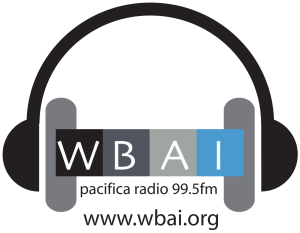The Power of Words, and of Silence
Joy Jacobson is a CHMP senior fellow. Follow her on Twitter: @joyjaco
For the past couple of years I’ve attended The Power of Words, the annual conference of the Transformative Language Arts Network. I’ve become more of a conference-goer in recent years, as well as a presenter, but this one seemed unlike any of the others I’ve attended. Novelists and poets, musicians and composers, expressive-arts therapists and health care workers, those new to writing and those who’ve devoted their lifetimes to the craft all gathered for a few days of “workshops, performances, talking circles, celebration and more.”
I left last year’s gathering, held at the beautiful grounds at Pendle Hill, a Quaker retreat outside Philadelphia, with the phrase radical acceptance going through my mind. I won’t be able to attend this year’s conference, to be held at Lake Doniphan Retreat Center in Kansas City, MO. I’ll miss those people and the community that gets made when like minds and intentions come together.
It’s an aptly named conference. Last year I led a poetry workshop on “self-elegy,” and it was indeed powerful to see what a group of readers and writers could compose in 90 minutes. (Two brilliant attendees, Seema Reza and Maiga Milbourne, each blogged about it, here and here.) But that phrase, power of words, has got me thinking, too, about the powers of silence.
For the first time in the many years that I’ve owned a cell phone (or has it owned me?) I have turned off the text-message-notification noise. For 10 days now there has been no beep, no trill, no hum or vibration, no ring-a-ding-ding when a message arrives. It started one insomniac night as an attempt to block out any potential disruption to sleep, should I have been lucky enough to fall back into it. In the morning I thought it might be nice to take a vacation from the fake bell—not from text messaging itself, just from the relentlessly Pavlovian audio.
As I write I’m sitting outside. There’s a distant thrum whose source I can’t quite identify, probably a train. A couple of chickadees perform their unrepeatable tweets. The 10 AM church bell chimes, and my little dog decides to yap in response to something beyond my hearing. Clank: a truck hits a bump. A neighbor’s air conditioner rolls over and over. The cicadas start, then drop, then start again their annual threnody to summer.
In attending to these entirely ordinary sounds I realize something about awareness. Perhaps what I found so remarkable about the Power of Words conference didn’t have entirely to do with the words themselves, whether written, read aloud, spoken, sung, or chanted (and they were remarkable). It had to do, as well, with the attention we all paid to one another: undistracted, unrushed, clear-eyed and -eared—radical—attention.
I just checked my phone. In the time it took me to write the previous paragraph a friend texted. Perhaps we could have a bike ride or a walk later today? I’ll get back to him in a minute or two.
[caption id="attachment_8035" align="alignright" width="300"] Black-capped chickadee. Matt





